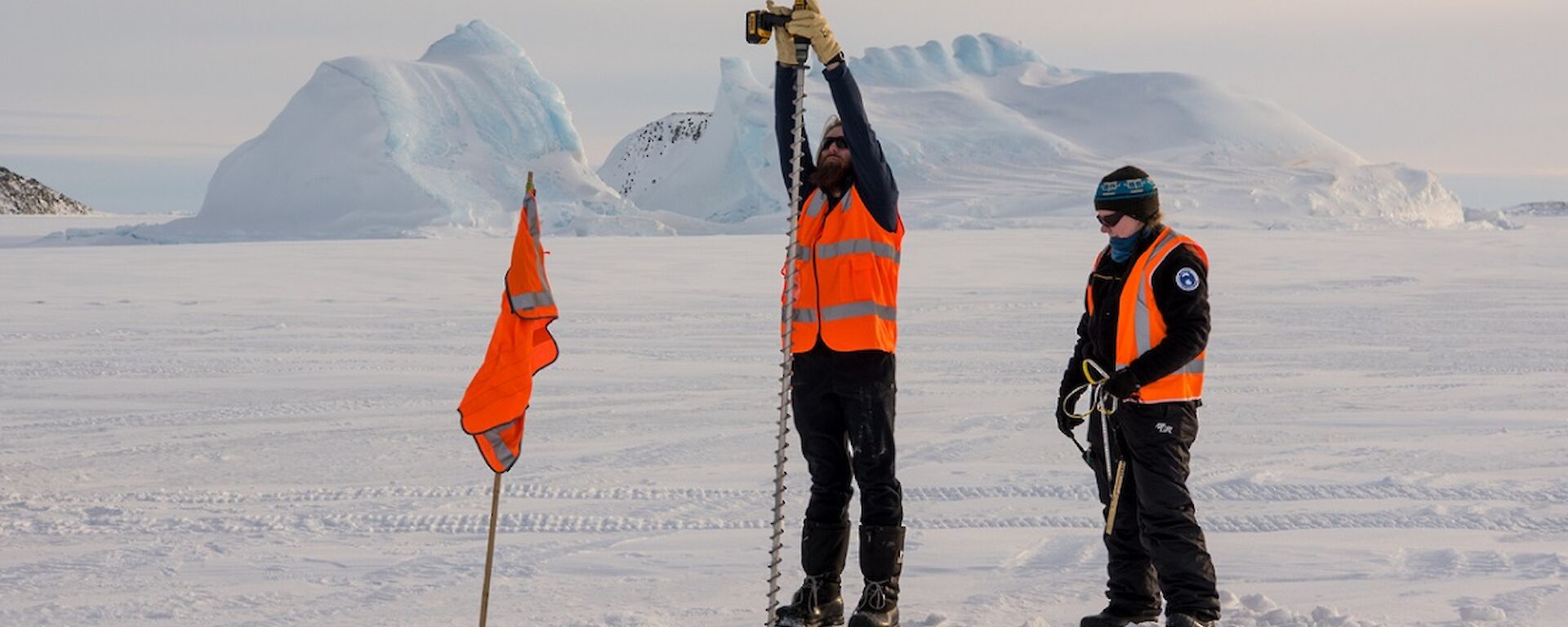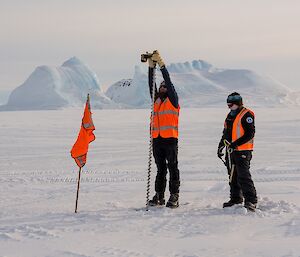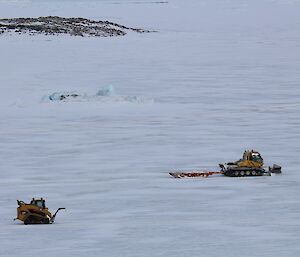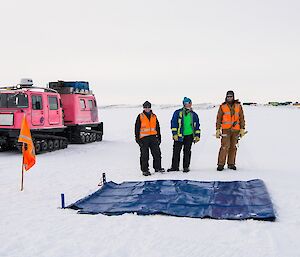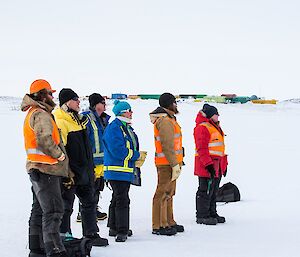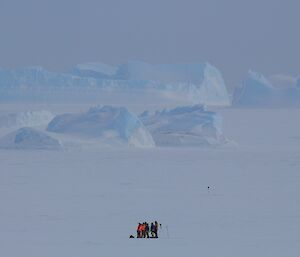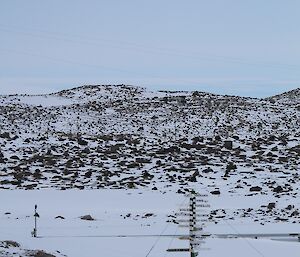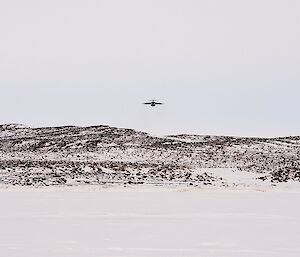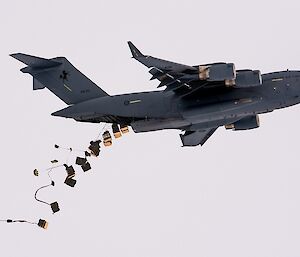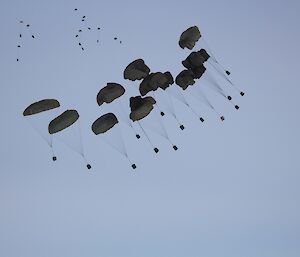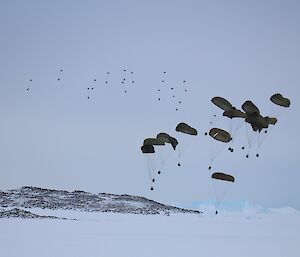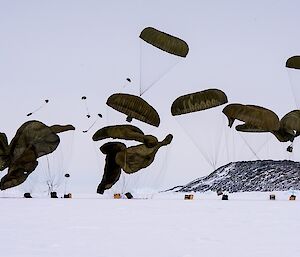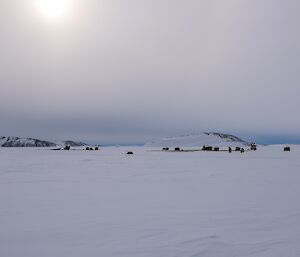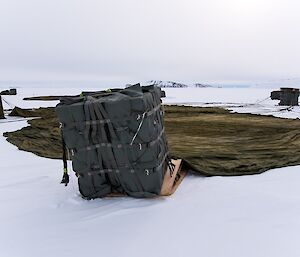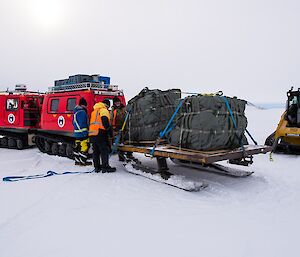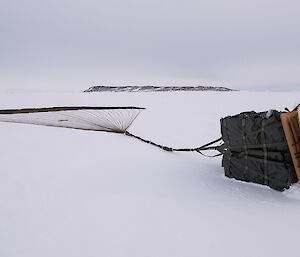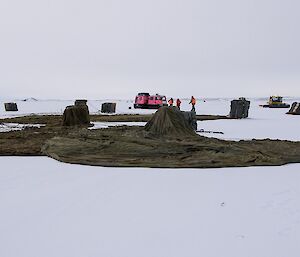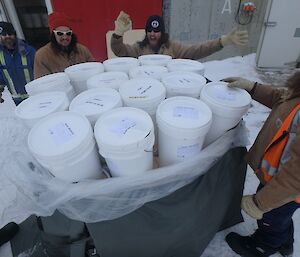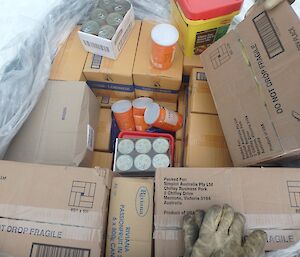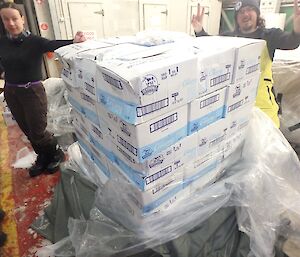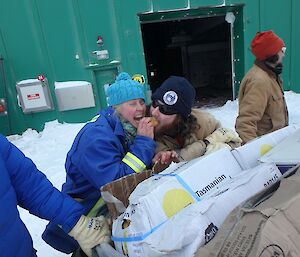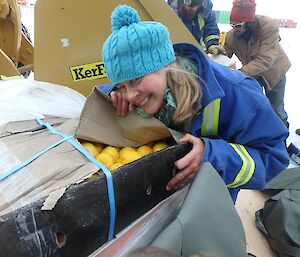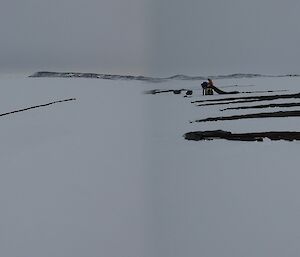This week has been all about the airdrop. This is the first airdrop to take place at Davis and represents a new capability for the AAD, meaning it now has year–round access to this station, previously only accessible by ship or plane during the summer season.
The airdrop proved to be very successful with 14 pallets, or nine tons of cargo delivered on schedule and in good condition. It was an exciting event to be part of and seeing a plane fly overhead after six months of isolation felt almost surreal. The cargo comprised fresh food (vegetables and fruit), dry goods, mechanical parts and medical supplies.
Everyone had a role to play on the day. Ice was drilled to check for thickness. Roads were groomed into the sea ice so cargo could have a smooth ride back into station. Daleen in Met relayed weather information back to Hobart which was forwarded onto the aircrew. Rob in Comms communicated with the pilots.
Post airdrop the drop zone team wrangled cargo onto sleds and drove it up to station. Parachute packers dealt with parachutes. Tony ran the shore side of the operation, dealing with the cargo once it reached station and everyone else moved boxes and processed the pallets. It was a long and satisfying day celebrated with fresh oranges after dinner and new mail.
Kirsten (Station Leader)
All hands on deck in preparation for today’s air drop and within a few hours of landing on the sea ice the first two pallets of cargo were transported back to station ready for unloading. When new supplies being delivered are few and far between, six months for us, it’s a very exciting prospect to get to see what’s been sent down and it is a real explosion of the senses especially for goods that you have not seen for some time. The first smell we experienced was coffee from the boxes and bags of coffee beans that had been sent, this was closely followed by the smell of fresh lemons, oranges and then potatoes and onions, pumpkins, carrots and beetroots.
Many hands do make light work and with an activity like this everyone on station lends a hand, or two hands in actual fact to unload, deliver and put away all the goods that had been delivered. Within a few hours this was done and everyone is now making use of the essential equipment and supplies that had been transported to us which would have traditionally been by sea but on this occasion by air.
Tony (Deputy Station Leader)

